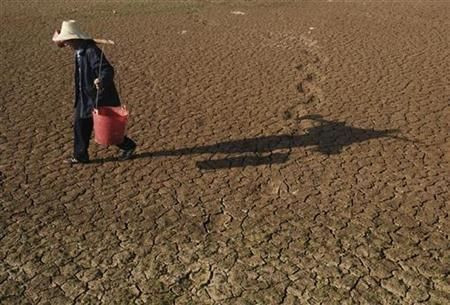Middle East could become 'intolerable' and potentially 'lethal' for human survival by end of century

High temperatures and humidity might turn the Gulf in the Middle East into a piece of land completely uninhabitable by humans, suggests the latest study by researchers at the Massachusetts Institute of Technology.
According to the team, if climate change remains unchecked and people fail to gain control over yearly carbon emissions, the Middle East will suffer heat waves that are completely intolerable and potentially lethal for the human survival. The Guardian reports that the heat waves are expected to affect large parts of Abu Dhabi, Dubai and Doha, in addition to coastal regions in Iran.
The temperature rise due to climate change is also expected to pose a deadly threat of the thousands of Hajj pilgrims who visit Saudi Arabia each during the religious festival in summer. The researchers say that such deadly heat waves could hit the region anytime after 2070, when each day would be equivalent to the hottest days of summer experienced today.
“Our results expose a specific regional hotspot where climate change, in the absence of significant carbon cuts, is likely to severely impact human habitability in the future,” wrote researchers Jeremy Pal and Elfatih Eltahir in the journal Nature Climate Change.
Oil-rich countries in the region, particularly Saudi Arabia, have tried to block international climate change negotiations in the past. The MIT researchers are hopeful that the recent study findings would encourage such nations to put their best foot forward in cutting down carbon emissions.
In 2015 itself, the Gulf was hit by the worst-ever heat wave with temperatures crossing the 50 degree Celsius mark. A number of civilians died because of the extreme temperatures.
Contact the writer at feedback@ibtimes.com.au, or let us know what you think below.




















